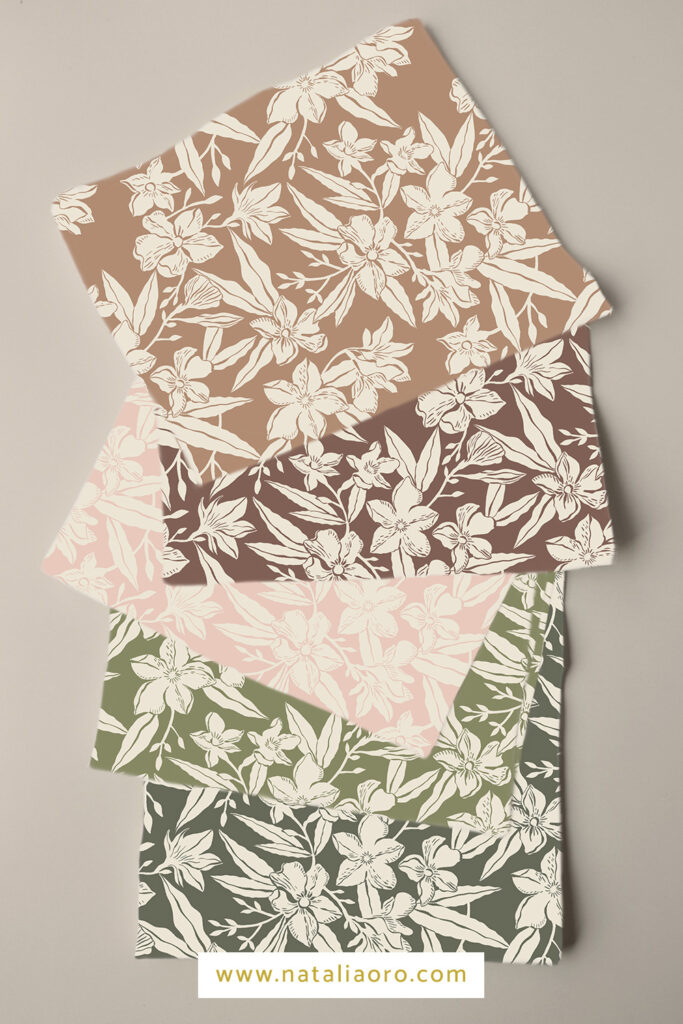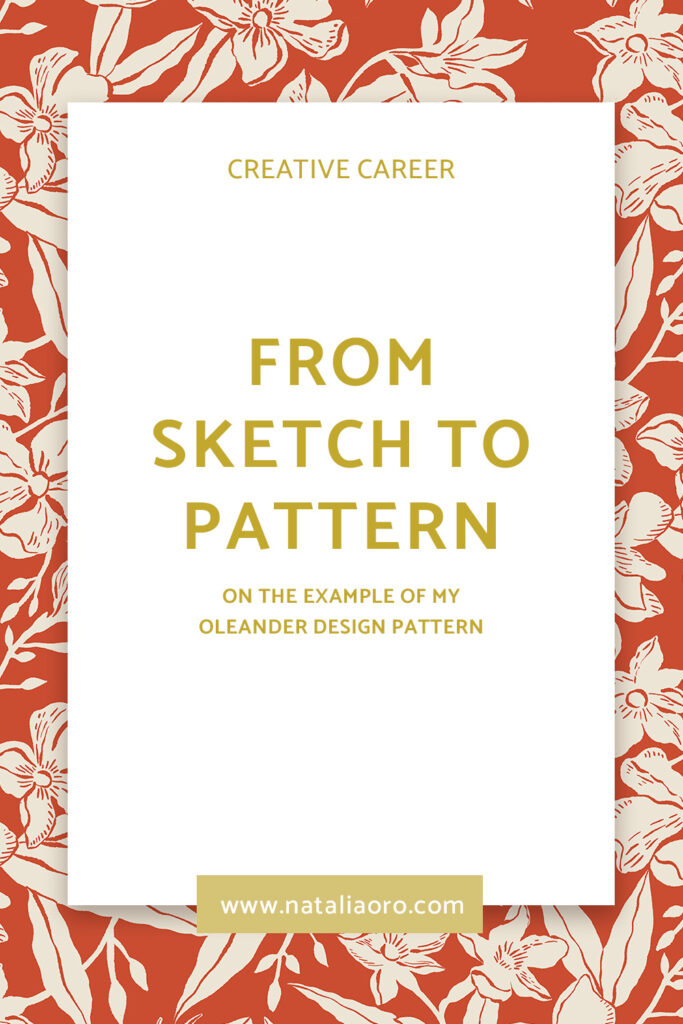
My creative process from sketch to pattern in creating a repeat pattern design:
Using my oleander design pattern as an example I would like to show you my design process from beginning to end.
1. Observe the flower:
- How many petals does it have?
- What shape are they?
- Do the petals overlap?
- What does the centre of the flower look like?
- Does the flower have a long or short stem?
- Is it a single cut flower or is it bush-like?
- Does it have only one flower or are there several?
- What is the typical colour of the flower?
- What do the leaves look like? Shape, colour, are they narrow or broadly distributed?
2. Take several photos of the same flower
I use these pictures as reference for my sketches and later for my composition and pattern planning.
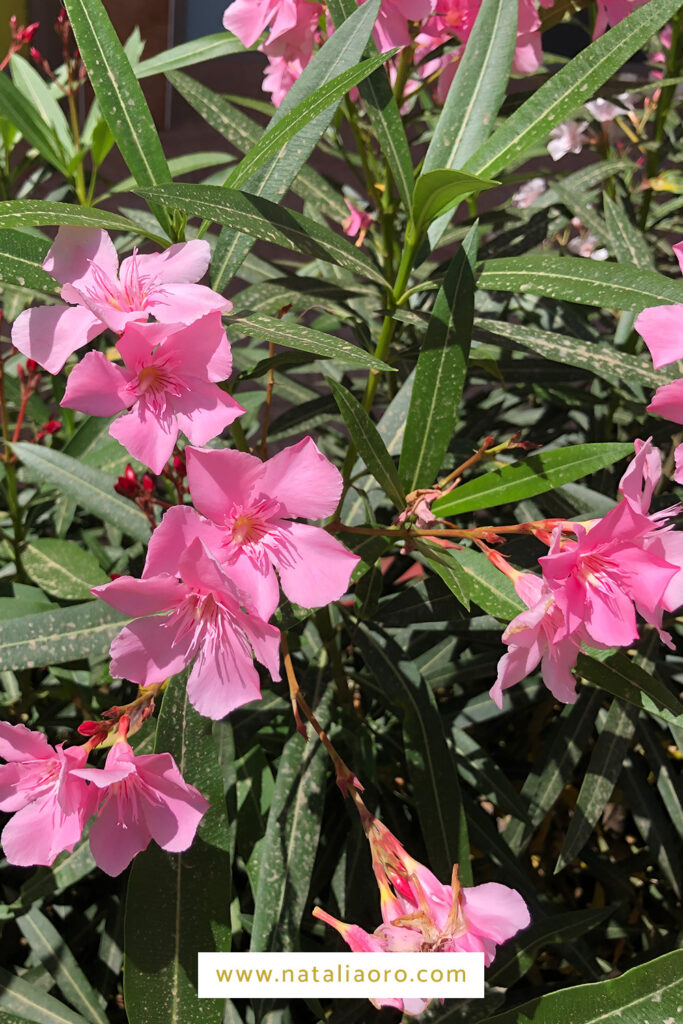
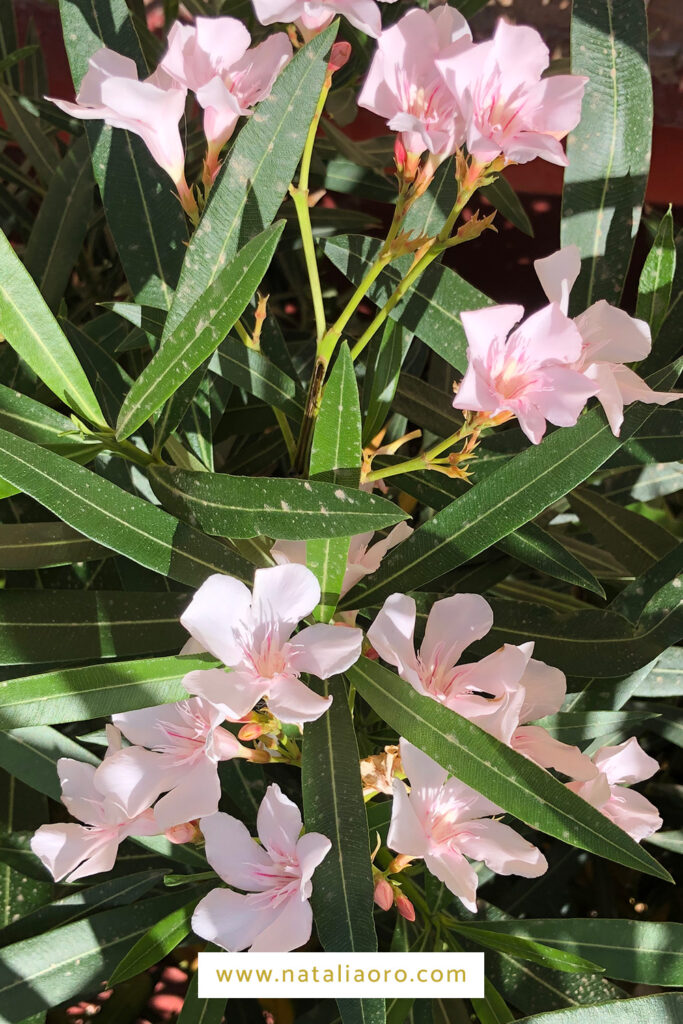
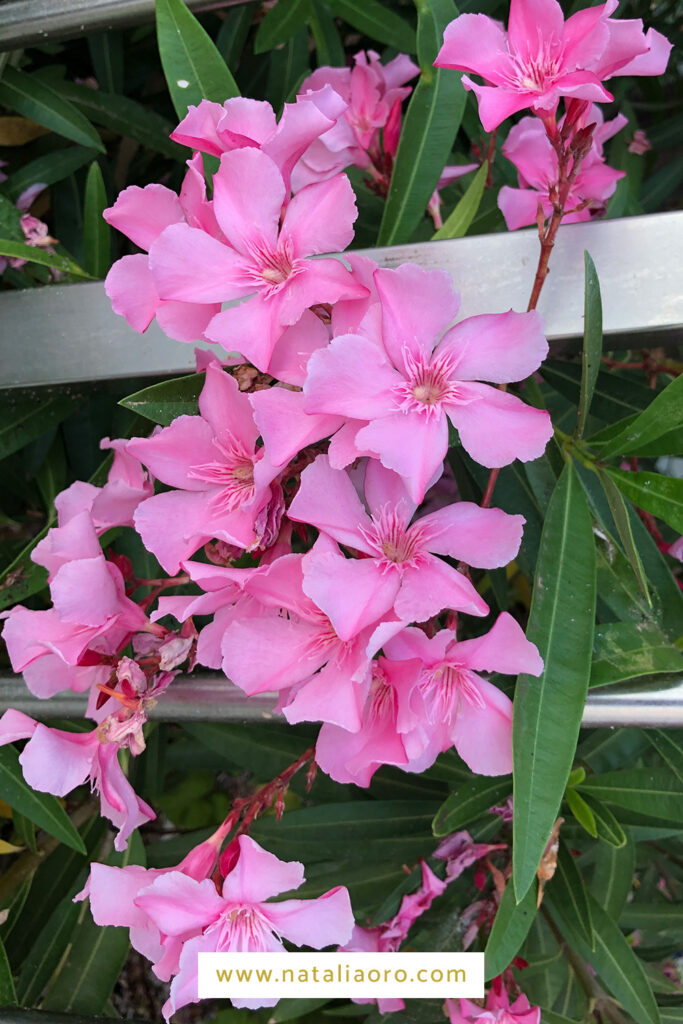
or
3. Draw from nature
Whenever I have the opportunity, I prefer to draw from nature. It is very beneficial to hold the flower in your hands and draw it from many different angles and perspectives. I usually sketch the same flower several times and try to capture every detail and its characteristics.
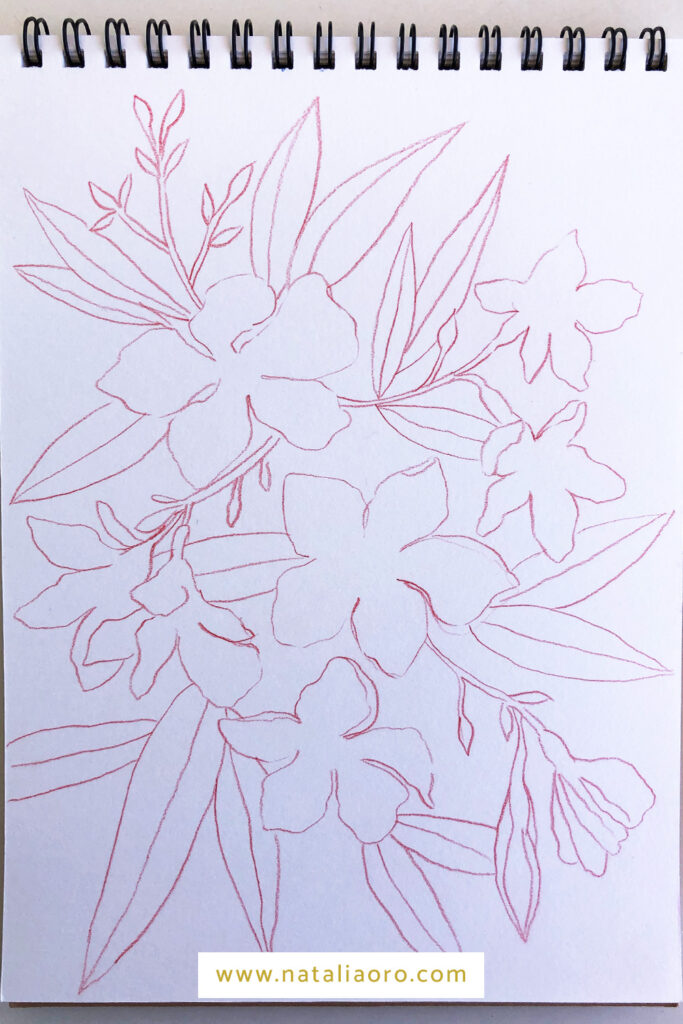
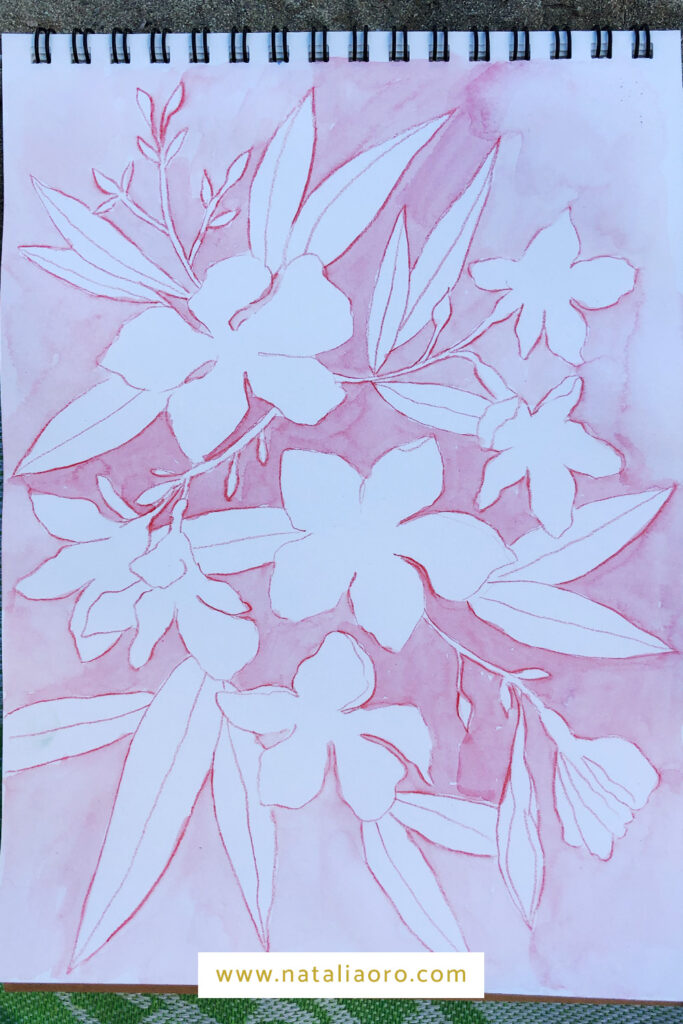
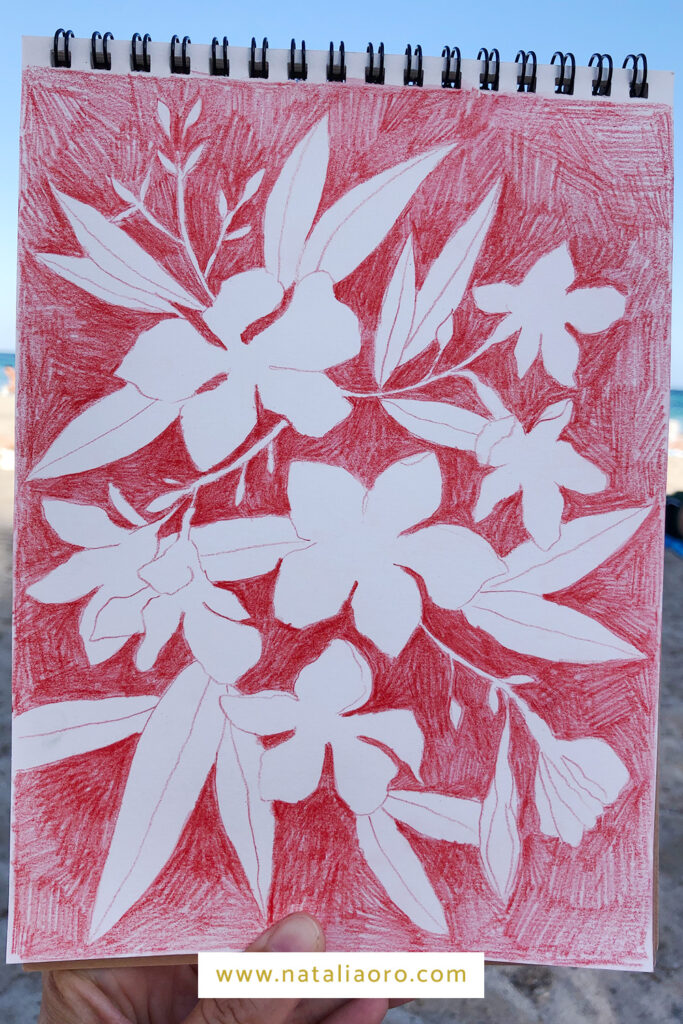
4. Plan composition & pattern
Once I have enough sketches of the flower and think I know its characteristics, I start to work on the composition. Next I decide on the repeat and plan the pattern. This stage is very important and requires a lot of testing to check that the elements repeat correctly and are evenly distributed.
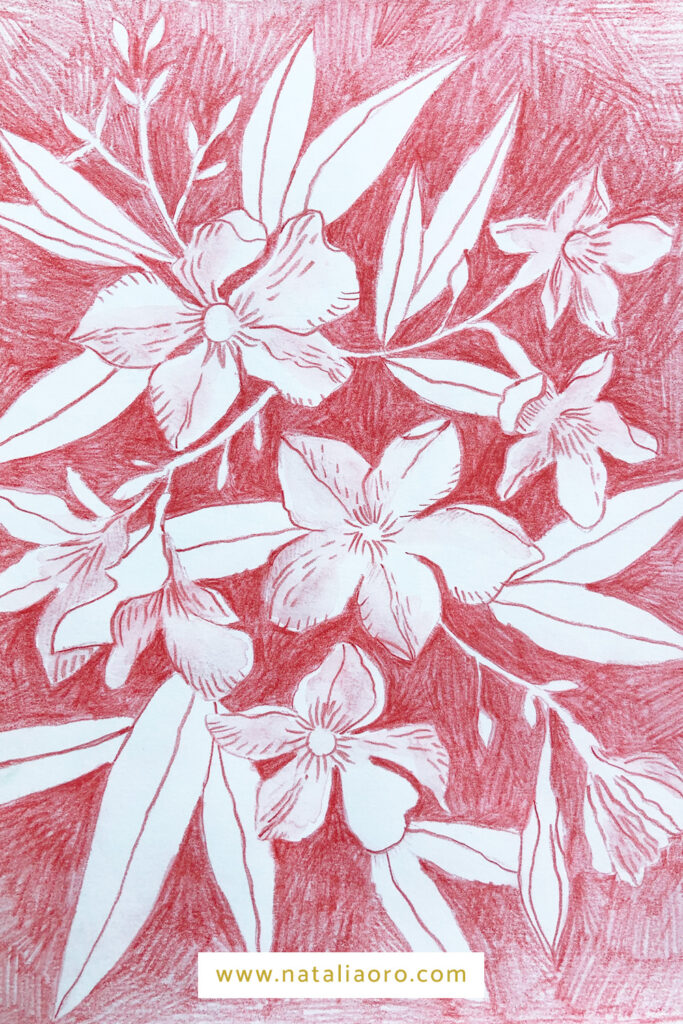
5. Colouring
I usually choose my colours before I start colouring in the elements. This helps me to progress faster and to be sure that they harmonise with each other. Sufficient contrast is also an important element.
-> Read more about my 10 favourite methods to choose a colour palette here
6. Testing
Test your finished pattern: Does it repeat seamless, how are the colours distributed, is there something odd?
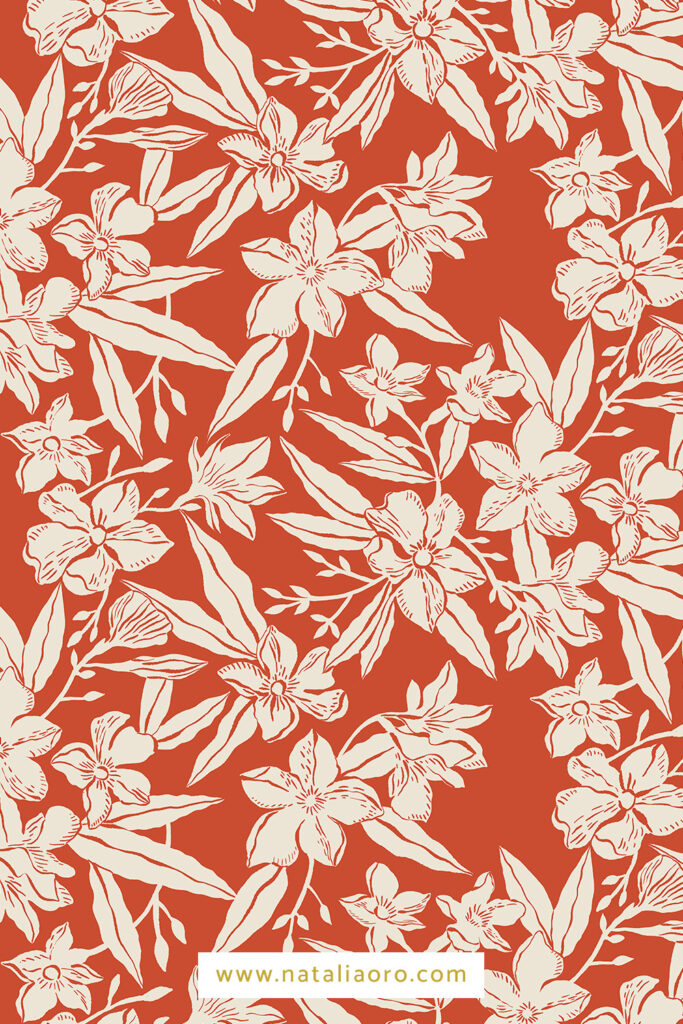
7. Create a few more colourways
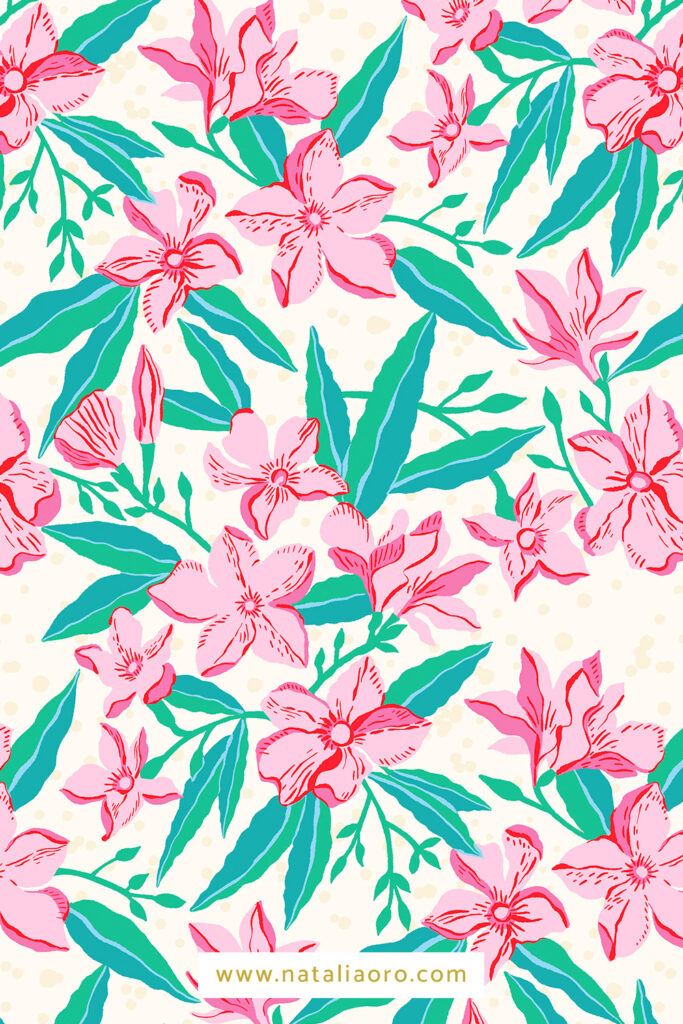
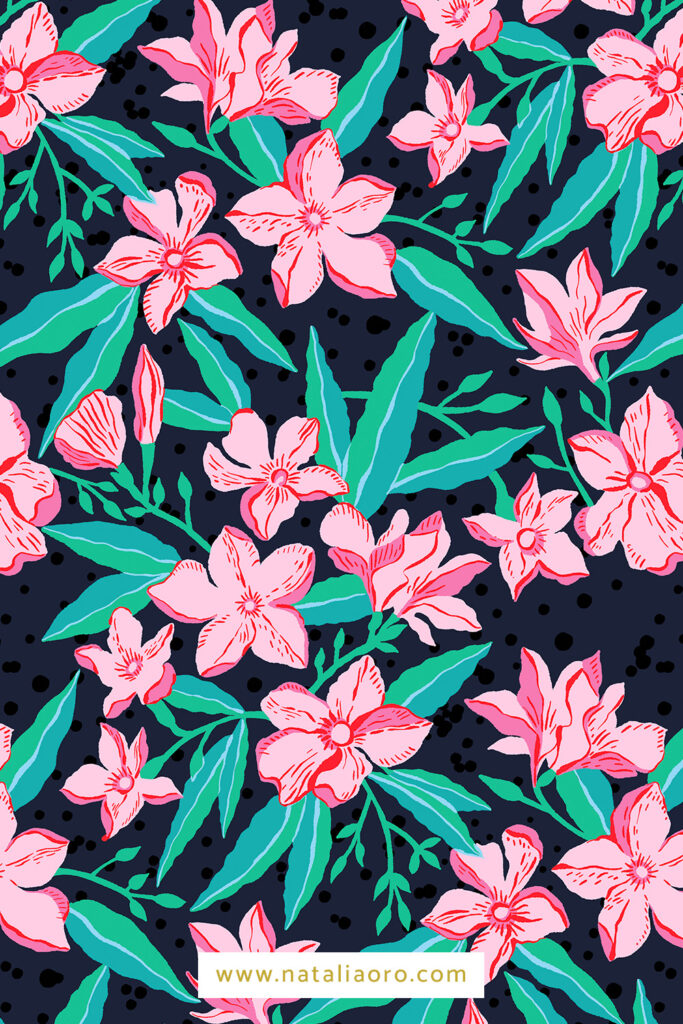
8. Create a pattern collection
